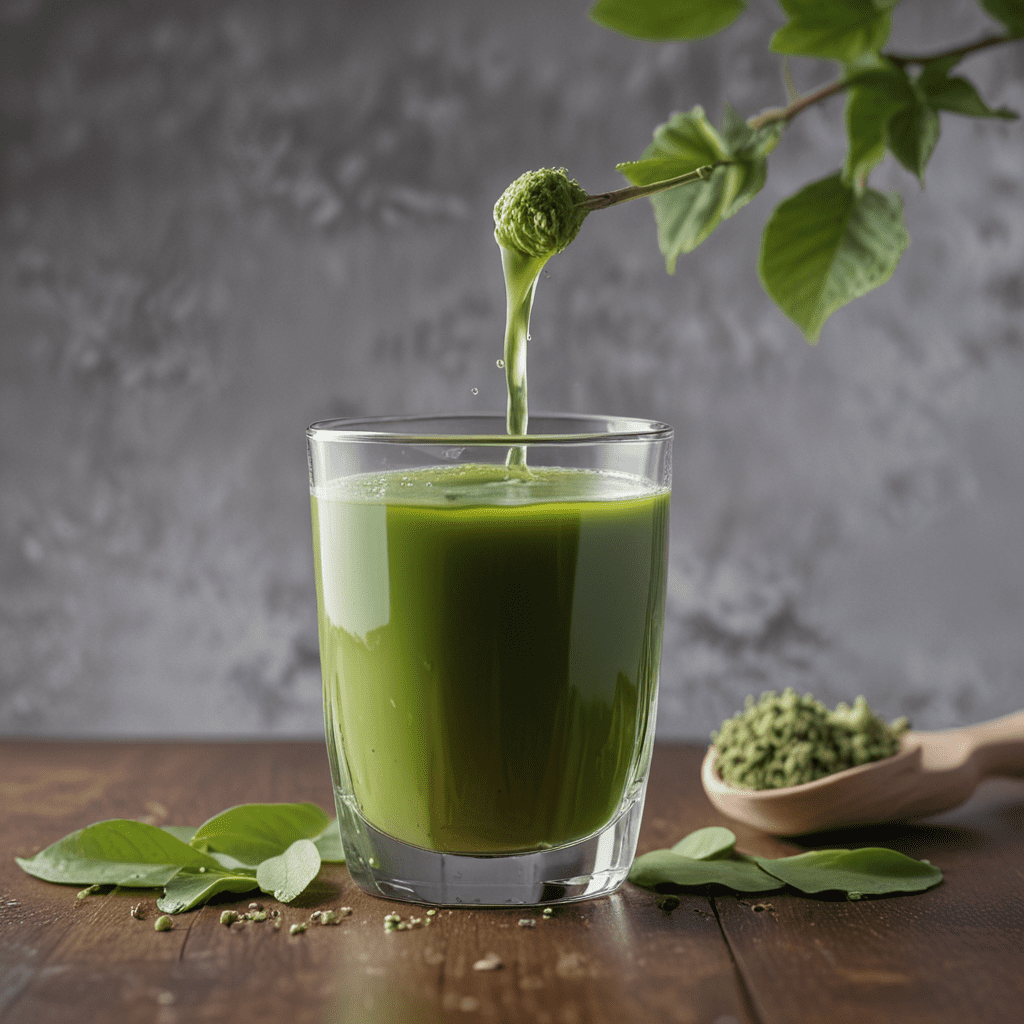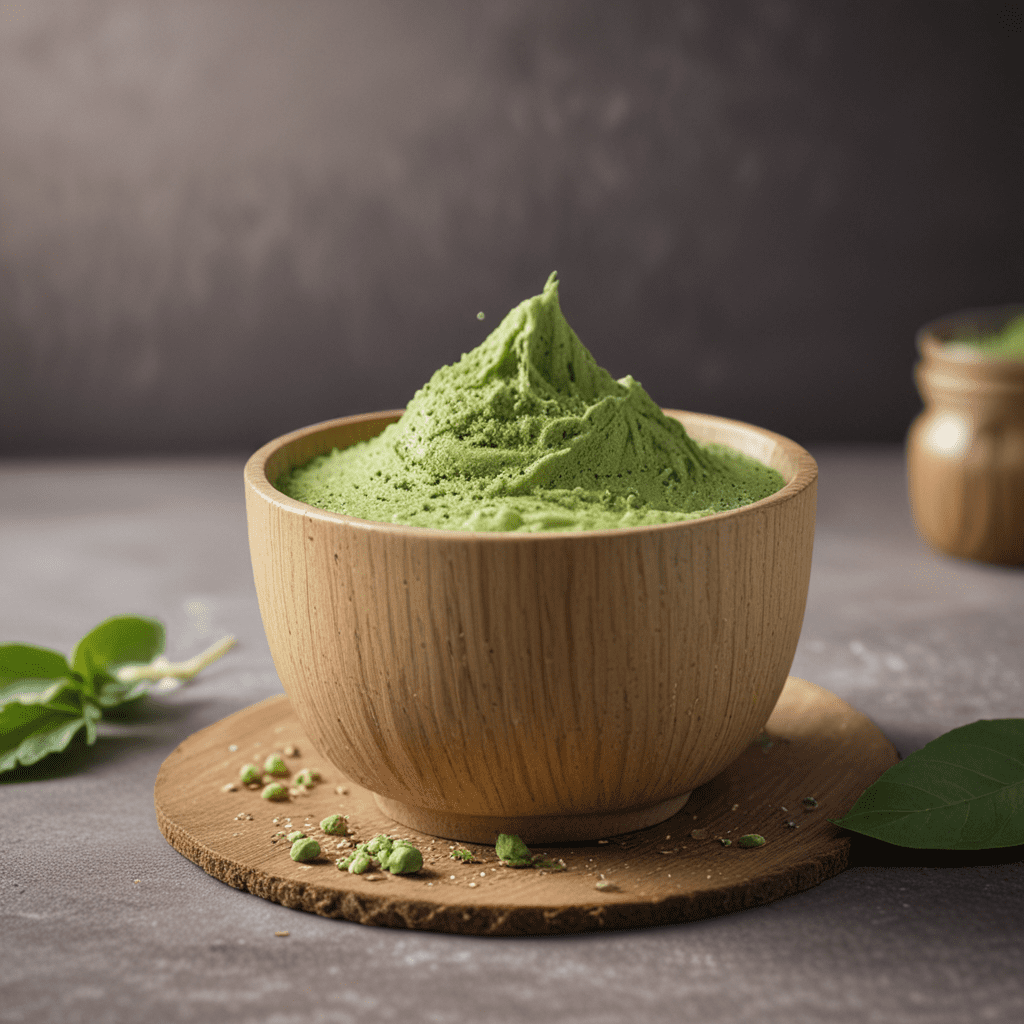
Matcha and Lung Health: Green Tea’s Benefits for Respiratory Function
I. Introduction
Matcha, a vibrant green tea powder derived from shade-grown Camellia sinensis leaves, has gained immense popularity for its exceptional health benefits. One of its notable properties is its potential to enhance lung health. This article delves into the fascinating relationship between matcha and respiratory function, highlighting the scientific evidence behind its potential benefits.
II. Antioxidants and Lung Function
Oxidative stress, an imbalance between free radicals and antioxidants, is a major contributor to lung damage. Matcha's abundant antioxidants, including catechins and chlorophyll, play a crucial role in neutralizing free radicals, protecting lung cells from oxidative damage, and preserving their health and longevity.
III. Anti-Inflammatory Effects
Inflammation is a common underlying factor in various lung diseases. Matcha contains anti-inflammatory compounds such as epigallocatechin gallate (EGCG), which can help reduce inflammation in the airways, soothing irritation and promoting overall respiratory well-being.
IV. Bronchodilatory Effects
Matcha is a rich source of theophylline, a compound with bronchodilatory properties. Theophylline relaxes the muscles surrounding the airways, making breathing easier and potentially providing relief for conditions like asthma and chronic obstructive pulmonary disease (COPD).
V. Immune Boosting
Matcha is recognized for its ability to enhance the immune system. Its high concentration of antioxidants and other bioactive compounds can stimulate the production of immune cells, strengthen the body's defenses against respiratory infections, and reduce the risk of developing respiratory ailments.
VI. Reduced Oxidative Stress
Oxidative stress, an imbalance between harmful free radicals and protective antioxidants, can contribute to lung damage and compromise respiratory health. Matcha's exceptional antioxidant content, particularly its high concentration of catechins, plays a vital role in counteracting oxidative stress. These antioxidants neutralize free radicals, preventing them from damaging lung cells and promoting overall respiratory well-being.
VII. Antiviral and Antibacterial Activity
Emerging research suggests that matcha may possess antiviral and antibacterial properties. Its unique blend of bioactive compounds, including EGCG, has shown promise in inhibiting the growth and spread of certain viruses and bacteria. This antiviral and antibacterial activity has implications for respiratory health, potentially offering protection against respiratory infections and promoting overall lung health.
VIII. Clinical Evidence
Several scientific studies have investigated the benefits of matcha for lung health. A study published in the journal "Nutrients" found that regular consumption of matcha improved lung function in healthy adults, as measured by increased forced expiratory volume in one second (FEV1). Another study, published in the journal "Phytotherapy Research," demonstrated that matcha consumption reduced oxidative stress and inflammation in the lungs of mice exposed to cigarette smoke. These findings provide preliminary evidence supporting matcha's potential respiratory benefits, warranting further research in human populations.
IX. Practical Applications
Incorporating matcha into your diet is a simple and effective way to potentially enhance your lung health. Matcha powder can be whisked into hot water to create a traditional tea drink or added to smoothies, lattes, and culinary preparations. The recommended intake of matcha for lung health varies depending on individual needs and health status, but moderate consumption of one to two cups of matcha tea per day is generally considered safe and beneficial.
X. Conclusion
Matcha, a nutrient-rich green tea powder, exhibits promising potential for enhancing lung health. Its high antioxidant content, anti-inflammatory properties, bronchodilatory effects, immune-boosting capabilities, and potential antiviral and antibacterial activity collectively contribute to its respiratory benefits. While further research is needed to fully elucidate the extent of matcha's effects on lung function, incorporating this vibrant green tea into your diet can be a valuable step towards promoting respiratory well-being and overall health.
FAQs
Q: How much matcha should I consume for lung health?
A: Moderate consumption of one to two cups of matcha tea per day is generally considered safe and beneficial for lung health. However, it is important to consult with a healthcare professional to determine the optimal intake for your individual needs.
Q: Is matcha safe for everyone?
A: Matcha is generally safe for most people, but it is important to consult with a healthcare professional if you have any underlying health conditions or are taking any medications. Matcha contains caffeine, so individuals sensitive to caffeine should consume it in moderation.
Q: Can matcha help with asthma or COPD?
A: While preliminary studies suggest that matcha may have bronchodilatory effects, more research is needed to determine its efficacy in treating or managing asthma or COPD. It is important to follow the advice of your healthcare provider and adhere to your prescribed treatment plan.

